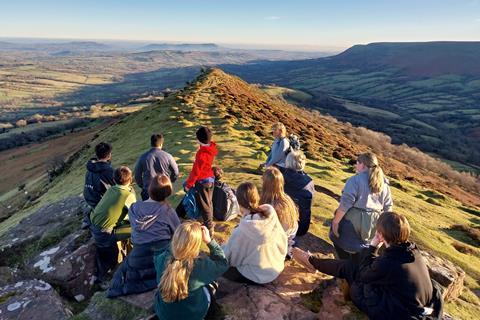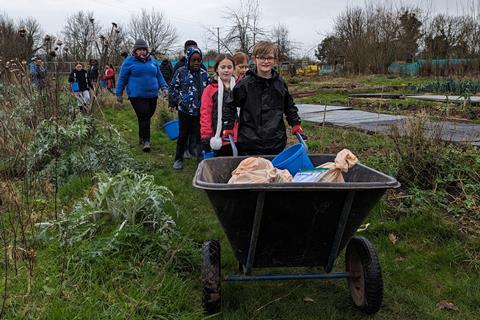A scheme offering pupils from targeted schools the chance to spend a week immersed in nature has been shown to have long-term benefits for young people, schools and outdoor learning providers.

Launched in 2021 by the Ernest Cook Trust in partnership with schools and outdoor learning providers, an OWL (Outdoor Week of Learning) is a tailored residential for pupils aged eight to 18 and is available for schools and young people who would particularly benefit, including those from deprived areas and with limited green space.
These funded opportunities are available to eligible primary, secondary and special schools, and the week-long residential is tailored to the needs of the individual school and its pupils. It enables young people and their teachers to embrace responsibilities of farm life, nature discovery and outdoor pursuit, all of which help to build self-esteem and encourage personal growth.
An impact report into the success of The OWL Collaboration, measured using pupil and teacher surveys, pupil postcards, reflective activities and teacher observations, highlighted tangible benefits to pupils, teachers, their schools and the outdoor learning providers.
KS3 sees biggest gains
The biggest gains were seen in Key Stage 3 pupils, aged 11 to 14. They felt more connected to nature and to each other, reflecting on the positive difference spending time outdoors made to them, including being away from screens.
Research also found that pupils displayed an increased connection to nature and well-being, significant increases in demonstrating care and concern for the environment as well as increased resilience and confidence.

The programme continues to have influence once the residential is over when pupils return to school. The trust helps to fund and support teachers to develop and embed their own outdoor learning.
Sarah White, head of learning programmes development for The Ernest Cook Trust, said: “This programme not only testifies to the importance of Outdoor Learning in helping to engage learners and to give them different opportunities to experience success, but it also has implications for the methods of teaching we want to champion in our schools.”
Pupils are encouraged to actively engage with nature rather than just spend time in it - noticing, appreciating, sensing, feeling, and finding meaning. From animal husbandry and field to fork journeys to exploring habitats and hiking hills - every moment is aimed at fostering connection, curiosity, and care.
Sarah added: “We all want our education system to raise resilient, confident, reflective citizens who have a consequential understanding of their place in society, and so through The OWL Collaboration we are investing in authentic experiences outside the classroom, supported by teaching practices which more emphatically connect learning to the real world.”
How could the trust help your school?
There are a number of funds available through the trust which can help schools who need the financial support most.
In addition to the Outside Week of Learning Collaboration programme one of the main forms of support is an Outdoor Essentials Grant which can help teachers and educational visits coordinators (EVCs) cover travel costs to get to natural open spaces or pay for kit like wellies and waterproofs for the children to wear.
For more information about The OWL Collaboration visit ernestcooktrust.org.uk.










